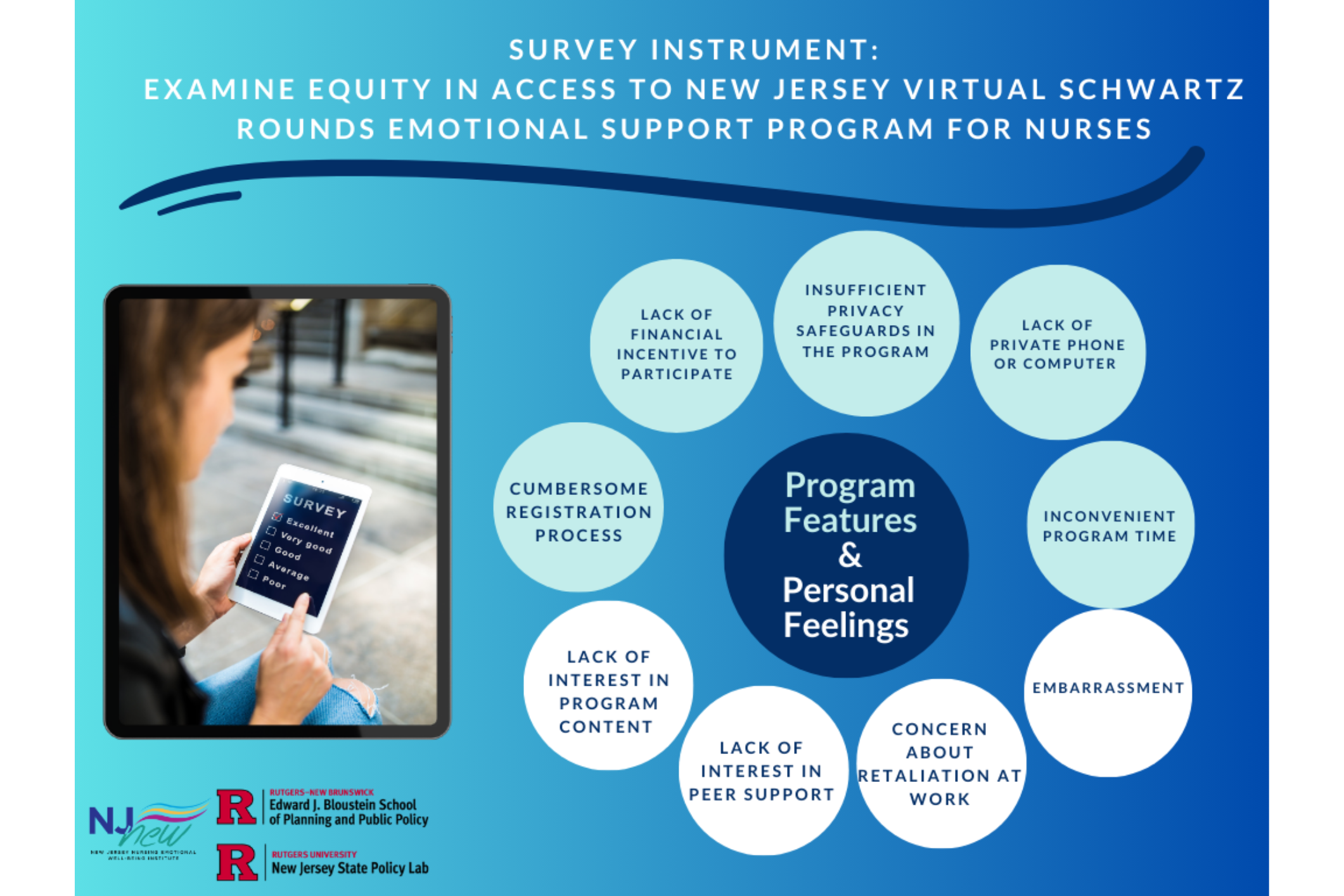By Irina B. Grafova, Pamela B. de Cordova, Jennifer Polakowski, and Jessica Anderson
New Jersey Virtual Schwartz Rounds (VSR) programs aim to provide a forum for nursing peers facing challenging experiences to connect virtually while trying to care for themselves and others. These VSRs have been running since November 2020 through the New Jersey Nursing Emotional Well-Being Institute (NJ-NEW). Compared to Employee Assistance Programs and other services that may be employment-based, VSRs are “organization neutral,” in that nurses are encouraged to share workplace experiences in a safe environment and allow for more open conversations without fear of repercussions. In order to evaluate nurses’ equity in accessing the VSR emotional well-being program, our research team will distribute a survey to the nurses who participated in the VSR. The survey focuses on demographics and workplace characteristics. The findings from the survey will also identify nurse perceptions of barriers, availability, accessibility, and utilization of emotional support programs. We are targeting to launch our survey in mid-spring 2024.
As illustrated in the graphic pictured above, the survey includes items validated in the 2022 National Nursing Workforce Survey. To address barrier perceptions, we found that prior study on workplace wellness programs identified two types of barriers to participation: program features and personal feelings. Using this framework and prior studies on barriers to accessing mental health care that utilized the Barriers to Mental Health Services Scale and the Barriers to Access to Care Evaluation scale, we developed a list of program features and personal feelings that can serve as barriers. We also are interested in identifying whether there are differences in nurses accessing VSR as compared to emotional well-being programs that are offered by the nurses’ employer.
The list of program features included such barriers as (1) insufficient privacy safeguards in the program, (2) lack of private phone or computer, (3) lack of financial incentive to participate, (4) cumbersome registration process, and (5) inconvenient program time. The list of personal feelings included the following barriers: (1) lack of interest in program content, (2) lack of interest in peer support, (3) embarrassment, and (4) concern about retaliation at work. We will use the items we developed to ask participants about barriers to accessing VSR and for those who have a workplace emotional support program, we will ask about barriers to accessing the latter.
Our validated survey findings can be used throughout New Jersey healthcare organizations to assist these organizations in improving access to emotional support programs at their organizations. Other stakeholders committed to improving nurses’ emotional well-being can encourage nurses to seek out these free, organization neutral programs such as VSR. Our findings will also provide important information further refining the much-needed emotional support programs for nurses across New Jersey.

